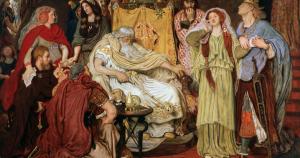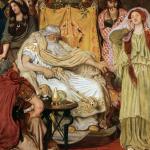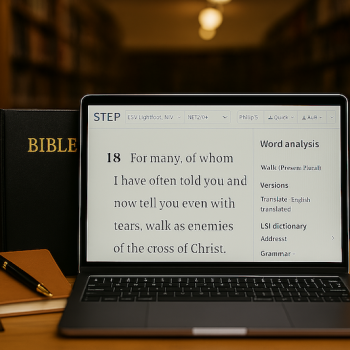 Lying to the Leader: Self-Dealing or Clever?
Lying to the Leader: Self-Dealing or Clever?
Would you tell the leader, a President, Pope, or potentate, what in his pride he wished to hear? Would you lie? What if a kingdom the reward for a bit of flattery? Isn’t London worth a lie? Many would prevaricate, confident their own character would survive one little “white lie” and that the outcome of the lie is (somehow) certain.
After all, God can forgive anything. We might lie and then be sorry. Wouldn’t any decent parent, especially an all good God, wish us to lie to save our life, get a kingdom, do a great deal of good? I am sure my dad, his dad, and his dad before him would not have wished me to lie. This is not merely because they were Christians, but because they were gentlemen.
They knew lying for personal gain in a tough situation protects tyrants, assumes what we cannot know (all the results of our actions) in order to do what do know is wrong (flattering a tyrant), and is dangerous for character. God can and will forgive, but we might become used to “white lies,” convenient fictions, and soon one ends with up with pastors who no longer believe, but collect a paycheck, politicians who pander to powerful narcissists in office, and a people who will betray their deepest values to eke out their lives.
In the light of eternity, sound women and men tell the truth to tyrants. We might help the mentally ill, who cannot know the truth, but to the wicked systems of our time, we owe them the truth and speak it unbendingly: “No. We are not afraid. We will not lie, even if we die.”
When the Soviet Union faced a mass of people who would not lie, the system failed. The same can happen in atheist China if enough folk will not tell the tyrants in Beijing what they wish to hear. Washington DC would be a better place if we measured alleged ends less than the corrupting power on our character of convenient lies.
Thank God this week the College is focused on King Lear that provides a guide to dealing with madmen with power.
Shakespeare Provides some Moral Clarity: Better to Die than to Tell a Lie
Shakespeare, as usual, humanist Christian that he was, deals with just this issue: one of his bravest, greatest heroines will not flatter her father, lie for a kingdom. As a result, she loses an inheritance, a husband, and her father.
So why not lie?
She puts it this way:
Unhappy that I am, I cannot heave My heart into my mouth. I love your majesty According to my bond, no more nor less.
Cordelia knows three things. First, against tyrants the truth must be spoken. Why? The tyrant may repent. One does not know and even he has a soul one wishes could be saved. Second, if she speaks the truth, then she can stand as an icon of integrity against the flattery and “go along” folk. The martyr to the truth spreads the truth, even if only in whispers in the politburo, the court, the Congress.
Third, the future is complicated. Cordelia will (almost) certainly lose a kingdom and a husband if she tells the truth. She might lose her life. Yet when dealing with a madman, who can be sure? Perhaps the truth will jar him to a better course. Cordelia knows that if she lies, she has surely done what benefits her. Nobody is so good they can be sure of their motives. She might be looking for a “greater good” if she lies or she might simply be a moral coward covering up by pretending. She would have to live with this in the future and so would everyone who works with her.
Instead, Cordelia tells the truth. The immediate result is mixed. The mad king deprives his best daughter of a kingdom, but she also flushes out a man who would have married her just for her inheritance. Instead, she finds a man who marries her for love when she is at the bottom. That’s not so bad. Meanwhile, in the long term, Cordelia is a moral center for English in exile. She will return and her invasion, though it fails, will precipitate the end of tyranny in England.
Against the complicated future, Cordelia controls the one thing in her power: her moral choice. She chooses the truth in the face of power. She is not afraid of the sword, being more afraid of a lie.
There is a certain self-serving cad calculating just why the coward’s way is actually brave, sensible, or for the greater good. He habituates himself to convenient white lies and then has reasons why what appears to be cowardice is really sound policy. He never hears King Lear say:
Thy truth then be thy dower; For by the sacred radiance of the sun, The mysteries of Hecate and the night, By all the operation of the orbs From whom we do exist and cease to be, Here I disclaim all my paternal care, Propinquity, and property of blood, And as a stranger to my heart and me Hold thee from this for ever. The barbarous Scythian, Or he that makes his generation messes To gorge his appetite, shall to my bosom Be as well neighboured, pitied, and relieved As thou, my sometime daughter.*
Truth was her inheritance and Shakespeare shows the truth prevails in the end. The King was a fool, but even he comes to see this truth in the end. Why? The liars and the flatterers are revealed as the cads, self-serving double dealers, as false friends are.
Cordelia might tell a lie to protect someone else. People like Cordelia shan’t lie to flatter a tyrant, save themselves, or betray their values. Better after all to die than to tell a lie. Cordelia does die, but her death saves England. The common folk have a moral example for all time of integrity and they are free of the rot of the tyrant Lear. She even redeems her mad father: her moral integrity puts her in a position to do so. If she had, like her sisters, been the sort to flatter for policy, then Lear would have had no child able to hear his confession and restore him to honor.
God help us. This Republic should raises up citizens who all aspire to be Cordelia.
————————-
*Shakespeare, King Lear. Act 1.1
King Lear gives readers Cordelia, the heroine we need just now, a happy ending if you are a regular person, even if the rulers suffer for their sins, and lessons in what not to do as an aging leader.

















